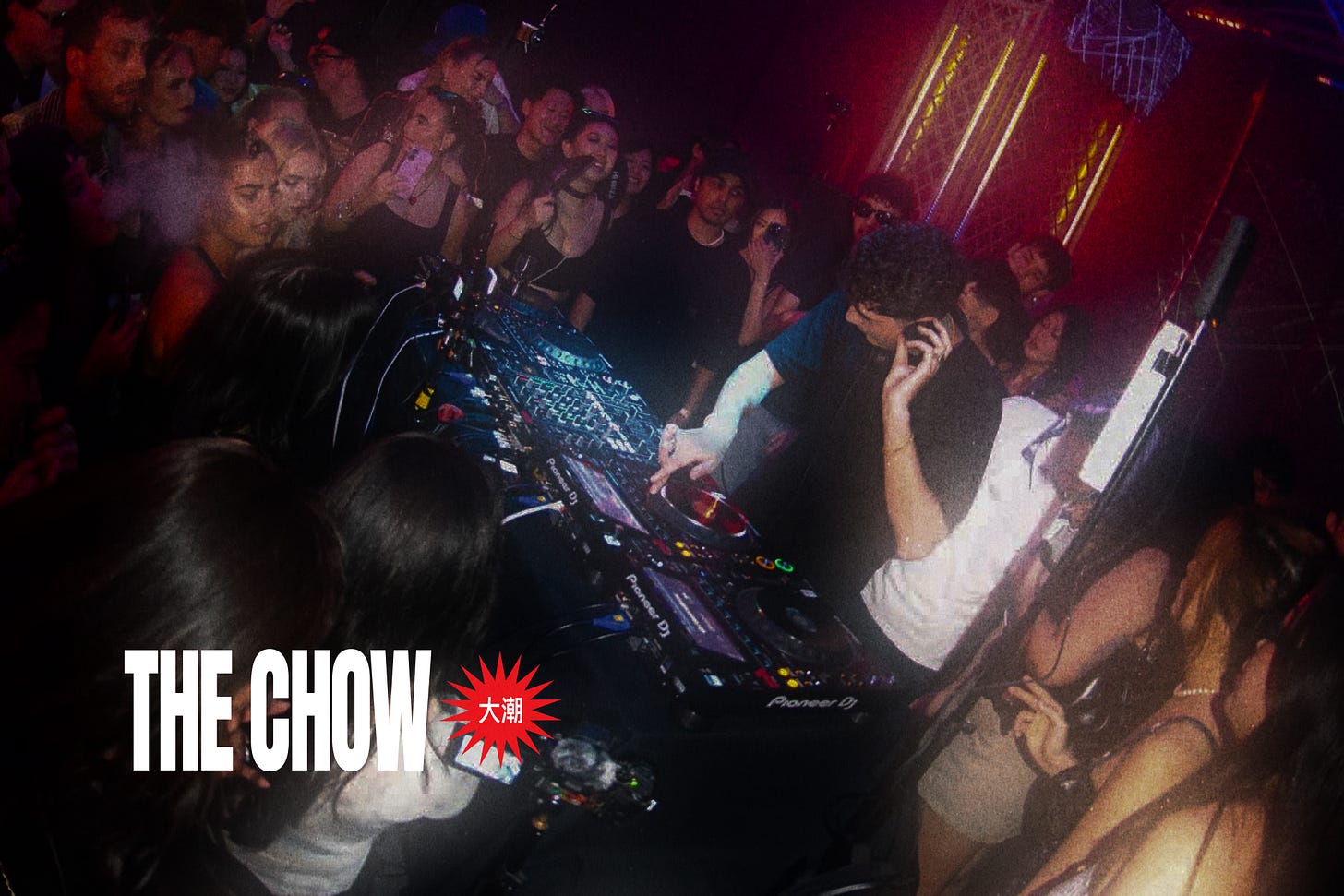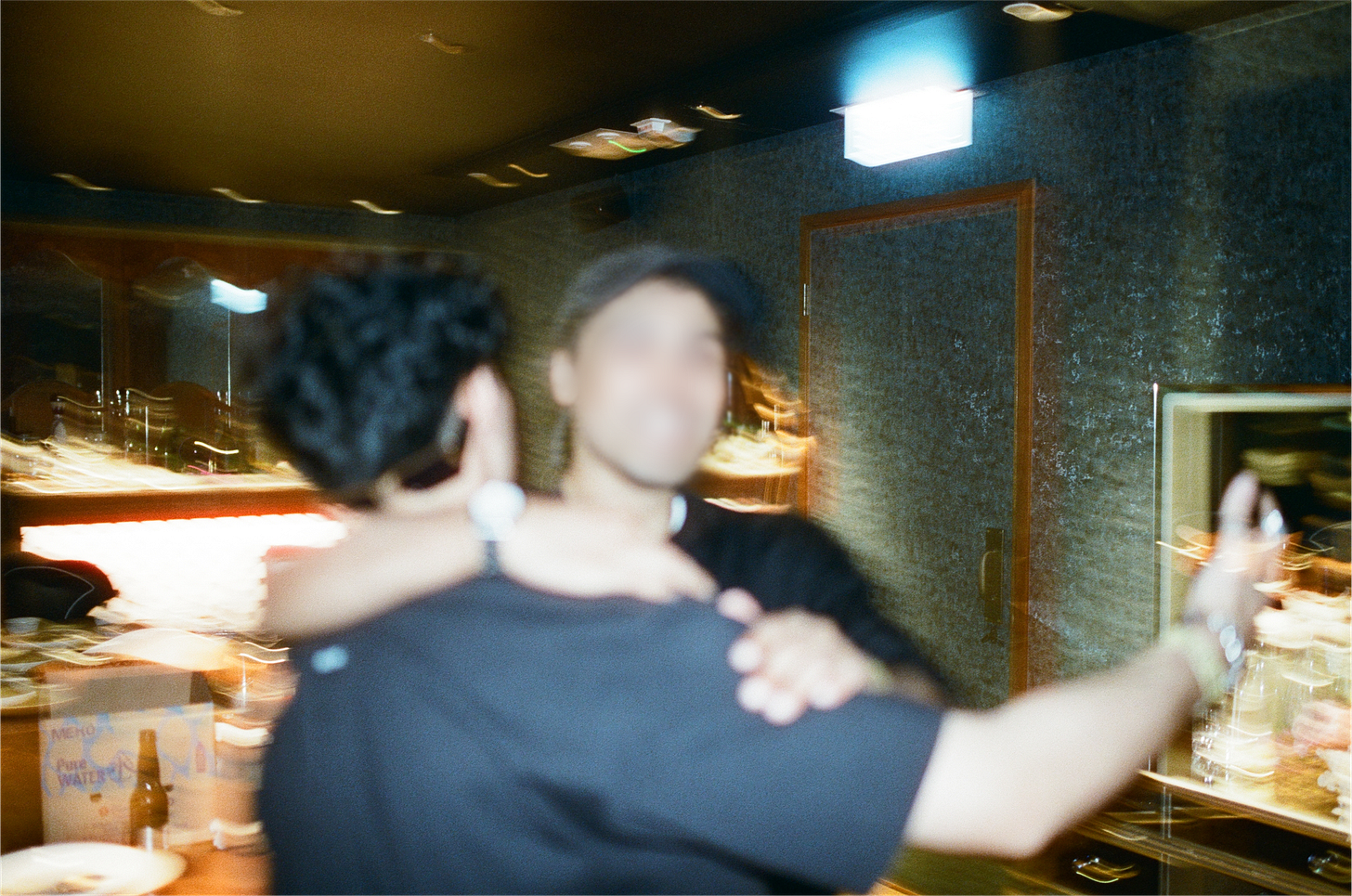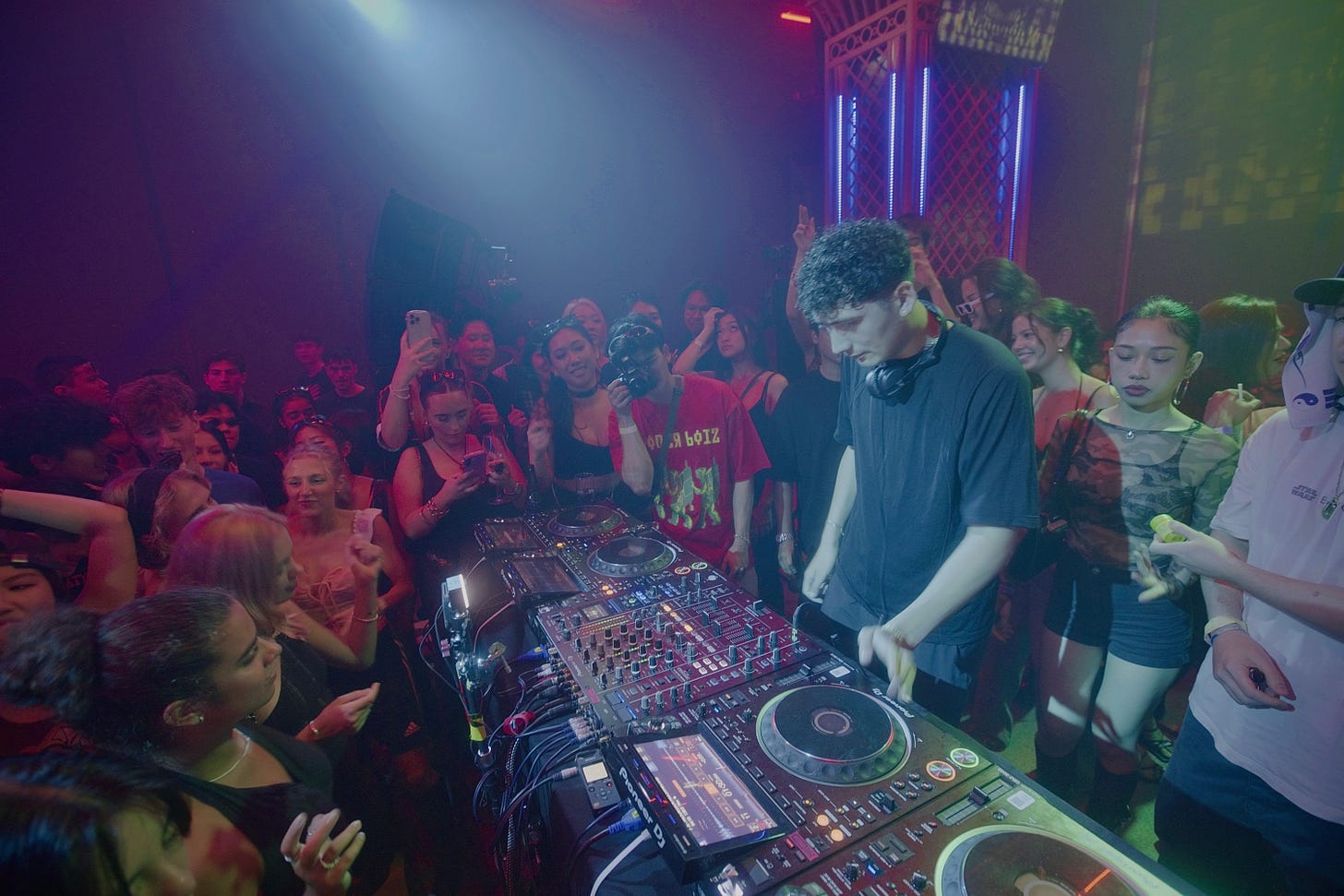This Party Was Homemade
In just two years, UMAMI went from hosting house parties to throwing one of the biggest electronic music events of the summer. How did they do it?
There has never been a more difficult time to organize a live music event. 50 festivals in the UK were postponed, cancelled or shut down in 2024 alone. In the US, almost two thirds of independent music festivals have been operating without profit. Festivals in Asia are cancelling left and right—but even those that manage to go ahead remain at risk of shutting down. For the organizers, the margins are paper-thin. And a growing number of attendees can only afford tickets with a buy-now-pay-later scheme. “The industry is on its knees,” one independent organizer told the BBC in March, leaving corporate giants like Live Nation, Superstruct, and AEG to be among few entities left with enough capital to host an event.
When Joyland Festival cancelled their Jakarta edition this month, its program director said, “Asia’s live event scene is evolving fast.” How, exactly? Hong Kong might offer an answer: One of the largest music events of the summer won’t be hosted by a large corporation with private equity-backing. Instead, it’s organized by two dudes who were throwing house parties only two years ago.
UMAMI, an agency led by Adi A., 25, and Abrar H., 27, is collaborating with Mixmag Asia to bring The Mixmag Lab to Hong Kong. Popularly known for streaming DJ sets to millions, The Lab has hosted icons like Carl Cox, Peggy Gou, Solomun and Charlotte de Witte. It’s The Lab’s second edition in Asia, but the first of its kind to be hosted across two days, and with a 30-artist strong lineup that brings international DJs (Bianca Oblivion, Club Angel, Soul Mass Transit System) to the stage with local scenesters (Yeti Out, Abyss).
How did two twenty somethings end up in charge?
Adi and Abrar began hosting house parties in the summer of 2023, starting with around 20 attendees each event, and scaling over time to 100-person parties. Here in Hong Kong, where home space is scarce and the city is tight, a house party can be an exclusive commodity, and the pair grew a reputation in private circles fast. “We built a good network of people that would want to come to whatever we’d organize,” says Abrar. Eventually, demand from friends and friends of friends capitulated. Adi and Abrar took to organizing events as a side hustle, and UMAMI—a Hong Kong-based events agency—was born.
The name, I’m told by the pair, captures the agency’s mission to “unlock the 5th taste of music.” But UMAMI might not describe a certain musical flavor or taste, as their events feature a broad swath of genres (go to their parties and you’ll hear UK garage, breaks, house, experimental club, hip hop). “UMAMI” might instead describe a certain appetite for risk, a bold flavor of ambition that defines their practice as an agency. And there is some sense of that in the brand’s origin story: “Two days before [our first event], there was a typhoon. We were about to cancel. We made only 30 ticket sales, all from friends,” says Adi. “But on the day, 100-150 people just came and packed the venue. And it just started from there.”
Now, a typical UMAMI event might look like this: Select local DJs man the decks as a crowd of partygoers enter the venue—the Soho House function room, a Lan Kwai Fong nightclub, or the Wanchai Ferry Pier. But by 11pm the venue is full, people are sweaty and eagerly anticipating what they spent 200HKD (25USD, the usual price of an UMAMI event ticket) on. The DJ booth dims and the crowd cheers and the next act arrives: A famous DJ enters the venue, plays their set, and tops off the night into a searing climax.
Bringing in high-profile international talent to Hong Kong is a staple of the UMAMI brand. They’ve only hosted fourteen events over two years, but have somehow managed to bring UK Garage stars like Interplanetary Criminal and Conducta, and hiphop artist Flowdan to the city’s nightlife venues, where they’re often playing back-to-back alongside local artists. There’s a bit of secrecy to just how they do it; their sourcing methods are kept vague. Some of it, the pair say, is through industry connections. Some of it also through robust social media content that acts as an in-bound marketing funnel. “A lot of people reach out to book events [with us],” Adi says. “And it’s hard to say no when the deal is good.”
But these successes might be attributed to the agency’s unique mode of operation. UMAMI’s six-person team exists “somewhere between commercial organizer and collective.” Grounding their work is a deep passion for the culture of electronic music, combined with a drive to share it across the city at scale.
But ideas like “scale” and “growth” aren’t limited to numbers on an accountant’s excel sheet; they can describe the culture you uplift and the impact you leave: “We made our events a little better each time,” Adi says. “And it came to a point that we were seeing the same cost of having an international DJ as hosting a normal event. Our trajectory for the rest of our events just leveled up from there.”
And they’re leveling up again: UMAMI’s collaboration with Mixmag “would be the biggest lineup The Lab has ever hosted,” says Arun Ramanathan, Director of Mixmag Asia. “ I don’t think Mixmag globally has ever seen a lineup like this, or a two day event around the lab concept.”
Why Hong Kong? “Not a lot of people are taking advantage of Hong Kong’s potential on a global stage,” says Adi. There’s sonic diversity in this city that many don’t appreciate: different cultures amalgamate into one and sound is present in every street and alley. Hong Kong also hosts Asia regional offices of the three biggest record labels in the world—Warner, UMG, and Sony.
This hasn’t translated into a larger infrastructure for music, no less live music events. Creamfields, one of the longest running electronic music events in the city, was set to run last March, but was cancelled due to unforeseen circumstances. Boiler Room came to the city in May, but primarily platformed artists from outside of the city. (“They brought 10 DJs from fricking Singapore,” one local DJ quipped. “Very few local collectives, if any, were added last minute to their lineups.”)
With paper-thin profit margins, live music is an incredibly risky business—something that more risk-adverse Asian investors might shy away from. Instead, large-scale music events in the region have often relied on government support—which, in recent years, has become more restrictive in Hong Kong, leaving some festivals to rely on crowdfunding.
“There’s plenty of ideas and visions going around the city. I get wind of them all the time,” says Arun. “But festival-scale events in Hong Kong are really, really, really difficult—the economic barrier being the biggest thing.”
With the void for live music events left wide open, who is left to fill it? It might be groups like UMAMI, where desire for scale without prioritizing profit can nurture the city’s electronic music scene. So far, this ethos has worked in Hong Kong’s favor: “I think all the [traditional nightclubs] have a lot of competition between themselves, but amongst the collectives—and groups like ours—everyone supports each other,” says Abrar. “There’s no sense of competition.”
“People want different music. There’s a shift, what’s considered the ‘underground’ and the ‘commercial,’” Adi adds. “It comes and goes every 10, 20 years, but we’re literally in between that shift right now.”
That shift seems to be working in UMAMI’s favor.







